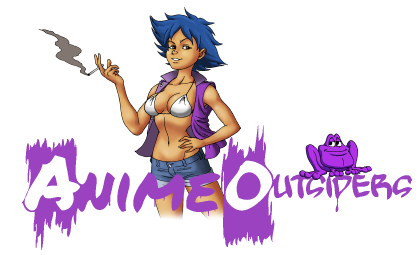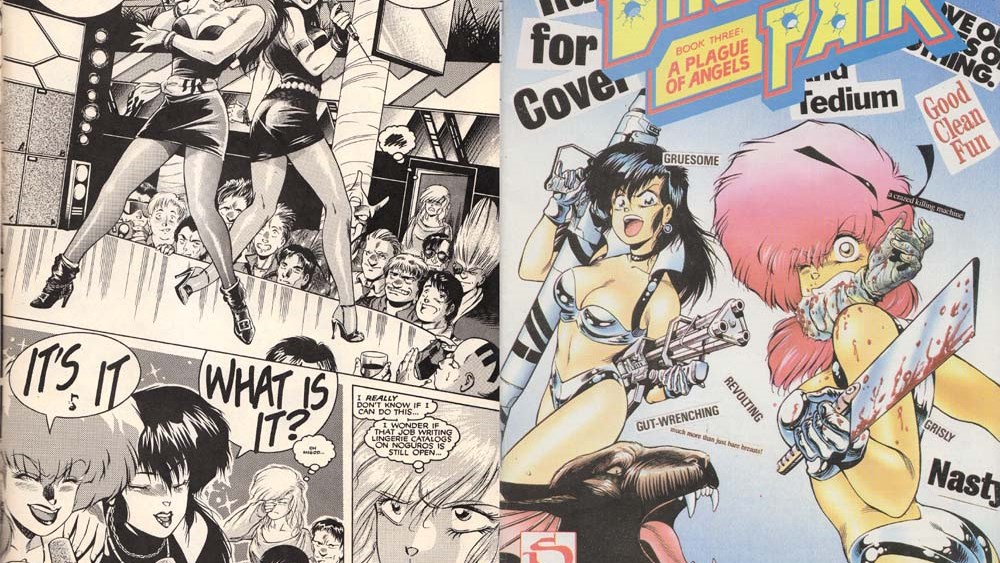Dean Talks Anime: Deification of the American Voice Actor
An opinion by Christopher Kinsey

So we’ve entered another year where the localization industry seems hell-bent on alienating their niche market more and more. Every subscription service seems to be mishandling their funds, their licenses and their press. Physical distribution has slowed and the little bit that does get put to hard copy has soared in price. The people who cover the anime news are grabbing any straw to fill newscopy. And in the center of it all, distracting us from the reality that this hobby very well might be steaming to a kind of collapse, is voice actor infighting. And this is something that has just ramped up in recent years.

Man, voice acting looks so glamorous and fun! I don’t foresee anything bad happening foreeeever!
Of course we’re talking about the Vic Mignogna/Monica Rial fiasco along with the sheer tonnage of fan infighting, not just on this issue but ever opinion of every voice actor and actress out there. I can’t go a day on twitter without seeing someone beating the drum and yelling to cancel or defend someone in the industry for one reason or another. It plays out like something every nerd claims to hate in their soul: Tabloid Drama. How did it get this bad? Why are there armies of people filling up social media to pass judgment on people who we perceive as a celebrity?
It’s entirely our fault. The Fans
Let me explain.

We have to hurry this reading up, I’m getting too into character.
Way back when, before anime really had a following in the US, dubbing anime was kind of a slapdash affair. You pulled actors from anywhere local and found a recording studio and just went for it. You learned on the fly about hitting the “mouth flaps” and were probably just struggling to get any acting job. And then part of the time you couldn’t afford real actors and just pulled in anyone who kind of sounded like the character you wanted. The real challenge was getting the anime to seem like the story wasn’t screwed with. Sometimes it was too daunting a task and you really had to make the dialog fit in English any way possible with mixed results. But at the time everyone seemed to do it for the fun, the experience, and to put those acting skills to some sort of use. At this point in time no one cared who as doing the dubbing, or how, or what the original translation was. All that mattered was that anime was getting translated, and of course fighting in the sub versus dub wars at the time.
But then came the conventions. Conventions go hand in with our tragic tale of fandom’s fall and the pillars that we put people on. Anime piggybacked on sci-fi and comic conventions for years. You’d find a room that played anime, perhaps some people could be in the costume (not “Cosplay”, not yet) contests and would get a passing “Who?” from the judges and audience while Lum and crew did a skit during the masquerade. There might be one dude selling anime merchandise and other assorted cool Japanese stuff and that was your lot. As the conventions got bigger every niche got more catered to. The Internet-connected anime fan clubs from all over and soon that meant buying power and their own conventions catered directly to anime fans. Like other conventions, you’d have people from the industry come as guests. For the longest time, the ones that got the most coverage were those that worked on the anime. Representatives from Viz, ADV and the lot would talk to folks about what it took to get anime from Japan to our eager selves. They would bring along some voice actors too and they would also talk about the craft. Up and coming manga-style comic artists would hold workshops, line the artist ally, and hold panels.

Anime Conventions of the Modern Age! The Internet Made Real! Ew!
But at the time these all paled in comparison to what the largest conventions could bring in. Japanese creators. When you’d bring over anime directors, manga-ka and more those folks always had the longest lines. And this had a huge influence on the rise of anime too because most of the creative forces behind anime could see that their work went far beyond Japan. They absorbed our culture of fandom and drew inspiration that made anime something for the world. As such anime kept getting bigger. The ebb and flow of creative ideas could be seen in pop culture, marketing and more to this very day. But this was the good we got out of conventions. And it fed right into the bad.
During this rise more people got comfortable with voice acting, and an entire generation wanted to BE voice actors. Voice acting was always seen as a lesser skill. An unkind assessment but it was a reality when it came to actors in general. Most were seen as mouthpieces for toys and for a while this was certainly the case. But with anime you could take on roles with some diversity. Action, drama, romance! This did not go unnoticed with our impressionable youths, so the voices of their favorite anime characters in English were catapulted into a kind of pseudo-stardom. One of the reasons for this was the throngs of folks willing for any information about how to break into the industry, and this was certainly a reason to listen and take heed their wisdom, I guess.

A three-hour wait for the slim chance to meet the larynx behind my favorite anime hero is a perfectly good way to spend this fleeting life.
But it’s the other reason that fandom elevated the voice-over artists that is where the ego inflation began. It’s hard to describe, but I’ll just say that anime fans, especially the ladies, decided to emulate voice-over fans from Japan itself. Voice-over work in Japan carried with it some real celebrity power. Fans running alongside trains, sending letters, drinking in your presence, special interviews filmed for DVD extras as a selling point. Almost a kind of worship. Now, of course, this is the root of what “Fan-dom” comes from- “Fanatic”. But during convention time, this was something else. A celebration of not just anime, but of friendships and everything that goes along with loving the subject matter. This party-like atmosphere was just that, an uplifting time where we were all there for each other. It was also the closest brush the humble voice actor could have with what celebrity felt like.
Let’s talk about “Celebrities” for a second. Especially the Hollywood acting sort. It’s understandable that as an actor, it’s possibly one of the highest achievements you can get to be in a big-budget TV show or a movie. And this can extend to voice acting. The headliners of “The Simpsons” make more money than I’ll ever see in my life. But then, when you already have established celebrity… why not use them? More and more American cartoon voice work is going to established live-action actors in all media, including video games. And most of the time these live-action actors can’t hold a candle to the voice acting crowd and are simply there for box office draw. But you see your field being crowded out… why not cling to your nice place in the anime industry?

Look at this. We don’t get to a full-time voice actor ’til we get to Lurch. Ahead of him include Finn “Stranger Things” Wolfhard and Nick “I Helped Create Big mouth” Kroll. You will never get a job lead voice acting a Hollywood cartoon unless you are already a Hollywood actor ever again.
In the film “Devils Advocate” a wonderfully scene-chewing Al Pachino explains to Keanu Reeves “Vanity, my favorite sin.” There is no greater example of this theme than the fall from grace so many voice actors in the anime industry have received. The bigger the fandom got, the bigger the perceived celebrity, the more these voice actors fed into this party atmosphere, doing so, so much that was off-script. Things that, down the line, could certainly fuel enough petty spats to keep The National Enquirer filled with scandal, justified or not, fueled for years. There is so much hearsay, conjecture, speculation on so much that happened during anime’s first peak. We have snippets of video, photos, eyewitness accounts and all of it is thrown into a whirlwind of public opinion and now, even the courts.
We are in this time, right now. We’re getting over the hangover of the first anime boom and fumbling through the medicine cabinet looking for the name of the person we woke up next to on their prescription medication. Anime in the west, as a whole, is trying it’s best to clean itself up as more and more properties might get kicked to that big merchandising or Hollywood reboot in the sky. A sanitized, trendy, politically-right-thinking and above all profitable machine is being put into place. But that machine clashes with how Japanese entertainment works so much we’re going to be stuck trying to fit two puzzle pieces that will not fit well together. Part of that machine is the drama of production, including feuds between talent. It will never go away now that it’s here.
Enjoy.

Untapped Source of VAs
–DeanTheAdequate knows one way to stop the inevitability of Voice Actor discourse. There are hundreds, if not thousands of talented voice actors voicing animations on Newgrounds and Youtube of all kinds and genres that have no prior exposure, skeletons in their closet, or bloated egos. There is a chance to find people who stay humble and remember how much better doing some voice acting is compared to a regular 9-5.


